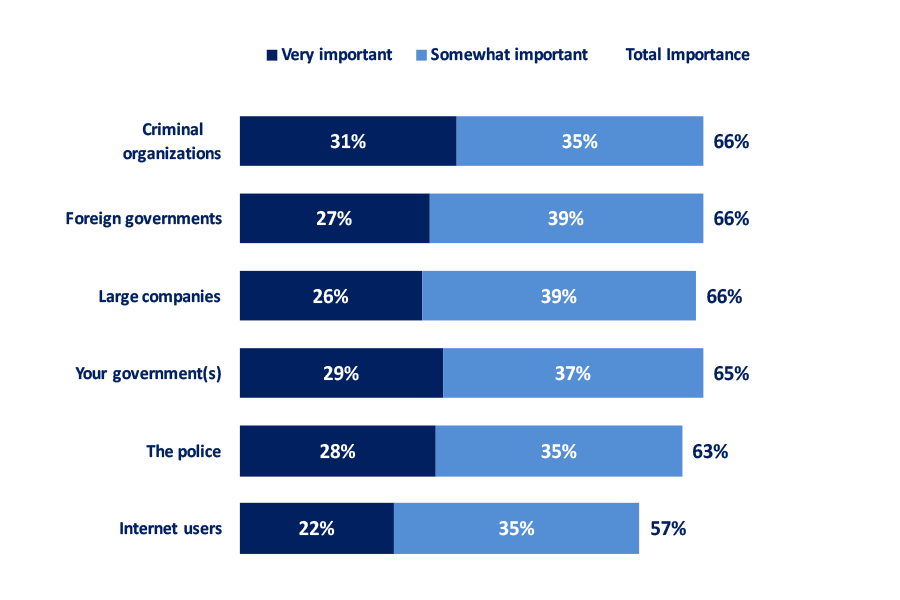The world hasn’t made up its mind on Anonymous.
A new poll shows a majority of people hold a wide range of conflicting opinions on hacktivist groups like Anonymous. That’s likely a reflection of the fact that always-changing and impossible-to-define nature of these groups.
After all, who is Anonymous, really? Anyone who feels like calling themselves Anonymous.
A new global online poll by the Centre for International Governance Innovation-Ipsos shows 66 percent of respondents in 24 countries believe hacktivist groups are breaking the law and should be stopped. Another majority, 52 percent, believe hacktivist groups ought to step in when no one else will to hold Internet users accountable. Finally, 56 percent of global citizens think hacktivists are a nuisance and provide no real value.
In other words, a majority of the over 24,000 respondents have conflicting opinions about the opaque and often confused world of hacktivism.
Much of the strongly positive support of hacktivists comes from developing countries like India, Kenya, and Nigeria. In Tunisia, opinions are markedly polarized but strong support remains widespread. The country only recently underwent a revolution pushed along in part by online activists, an event that continues to reverberate heavily today.
The United States falls near the middle when it comes to hacktivism, although most in the country err solidly on the side of law and order over hacktivists groups, the poll found. About half of Americans believe hacktivists are a nuisance, but another half think Anonymous and similar groups should stop in when no one else will. While 41 percent of Americans have a positive view of hacktivists, a full 69 percent believe they should be stopped and held accountable by the law.
And yet, the poll found that many believe hacktivists play an important role keeping everyone, from criminals to police to big corporations, accountable on the Internet.
“What we see in these findings is concern about entrusting these tasks to those nesting behind the vales of hacktivism,” Fen Hampson, director of CIGI’s Global Security & Politics Program and co-director of the Global Commission on Internet Governance Nonetheless, said in a statement. “Nonetheless, these findings most importantly demonstrate an undisputed appreciation for the power of the Internet as a tool for enhanced accountability and transparency.”



